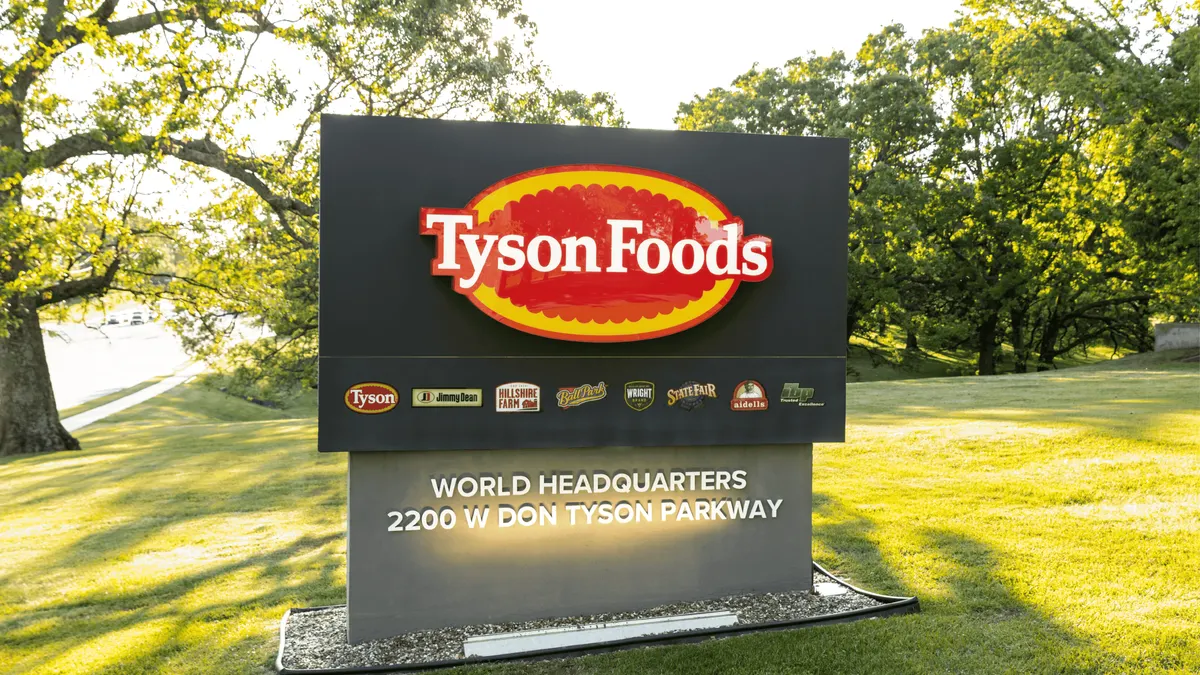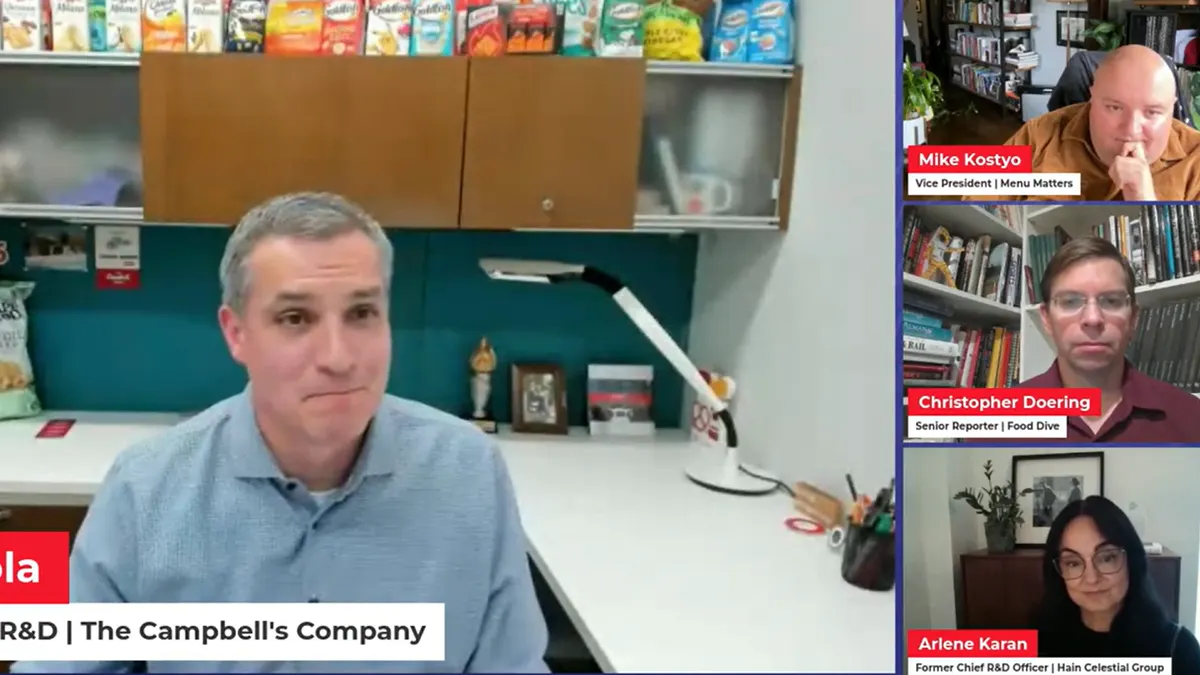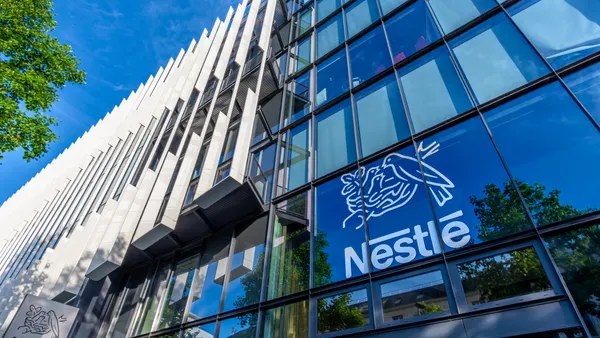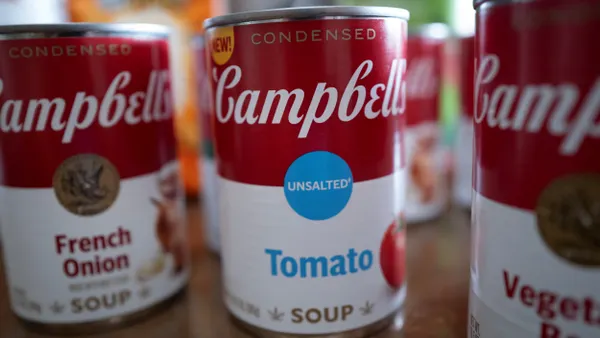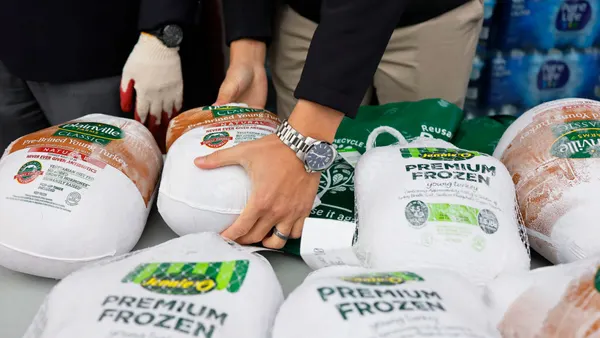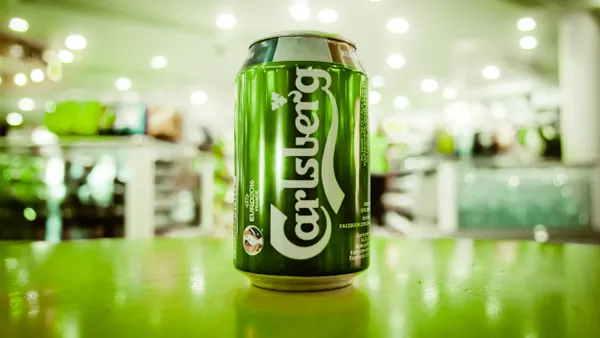Dive Brief:
- Tyson Foods will stop saying it can reach net-zero greenhouse gas emissions by 2050 and halt the use of climate-friendly claims for its beef as part of a settlement with the Environmental Working Group.
- The meat giant will stop making the climate claims for five years, according to the deal. Tyson will also refrain from selling beef with the "climate smart" label or introduce new environmental claims unless they are supported by experts.
- A Tyson spokesperson told Food Dive the decision to settle "was made solely to avoid the expense and distraction of ongoing litigation and does not represent any admission of wrongdoing."
Dive Insight:
Meat processors have faced growing scrutiny for years surrounding their emissions goals, particularly as more begin marketing their products as "climate-friendly." Beef has been targeted because it has one of the highest environmental footprints of any food, according to the United Nations.
JBS, the world's largest beef producer, said earlier this month that it would also stop making certain climate claims to settle a separate lawsuit with the New York attorney general's office. The Brazil-based company agreed to pay $1.1 million and will stop claiming it will reach net-zero emissions by 2040. Together, JBS and Tyson make up 50% of beef consumed in the U.S.
Environmental groups argue there is no technology available to reduce methane or nitrous oxide emissions from beef, which is found in manure or as a byproduct of the digestion process. Cows belch out enormous amounts of methane, which is more potent than carbon dioxide.
Around 3% of U.S. greenhouse gas emissions come from the methane in cow belches, according to estimates from the EPA. Beef production is responsible for 85% of Tyson’s greenhouse gas emissions, which exceed the levels of countries including Austria or Greece, according to the EWG.
“This settlement reinforces the principle that consumers deserve honesty and accountability from the corporations shaping our food system,” Caroline Leary, general counsel and chief operating officer at EWG, said in a statement. “The outcome makes clear that corporate climate pledges must be transparent, verifiable and rooted in real change.”
Tyson's climate-smart beef program, introduced in 2022, was the company's most significant investment in sustainability at the time, according to a company report. The program aimed to reduce greenhouse gas emissions by incentivizing ranchers to adopt climate-smart agricultural practices while also investing in research.
“Tyson Foods has a long-held core value to serve as stewards of the land, animals and resources entrusted to our care," a spokesperson told Food Dive. "We take a comprehensive and holistic approach to increasing operational efficiencies, identifying opportunities to reduce greenhouse gas emissions across the supply chain, and partnering with stakeholders to create a more resilient food system."
EWG filed its lawsuit against the meat giant in 2024, arguing the climate-smart label misled consumers into potentially paying a premium for products they believed to be better for the environment. Tyson is unable to reduce cow burps or manure without eliminating the animals themselves, EWG argues, making the company's net-zero goal unattainable.
Environmental groups are increasingly leaning on courts to drive action as regulation stalls, according to Kelsey Eberly, senior staff attorney at FarmSTAND, which represented EWG in its suit against Tyson.
“With climate-forward policies weathering existential attacks, legal actions like this are increasingly critical to raise consumer awareness about the outsized impact conglomerates like Tyson have on our climate,” she said in a statement.


